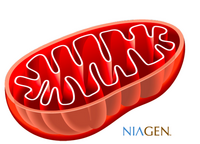ChromaDex-Elysium fight highlights glitches in NDI and GRAS processes

NutraIngredients-USA reported yesterday that ChromaDex had filed a citizen’s petition with the US Food and Drug Administration (FDA) alleging that Elysium Health is using a material in its dietary supplement Basis that does not have an NDI notification on file. ChromaDex had successfully filed an NDI notification on its Niagen ingredient, which is a patented form of nicotinamide riboside. Elysium was at one time using this ingredient, but now appears to have switched to material from an unnamed source, according to the petition. Elysium characterizes this as the action of a disgruntled former supplier, one with whom it is locked in an ongoing legal battle.
Paths to market
There are several ways for a new ingredient to enter the market. If the ingredient can be proven to come from a substance that has been in the food supply prior to Oct. 15, 1994 (the grandfather date spelled out in the Dietary Supplement Health and Education Act), it can go to market without further ado assuming it is not ‘chemically altered.’ That’s if it’s meant to be used in a dietary supplement. If the marketer of that ingredient wanted to place it in food products, its needs a GRAS submission, whether self-affirmed or one submitted to FDA itself.
If a dietary ingredient is truly ‘new’ in the sense that it's not been in the food supply before (astaxanthin would be a good example), filing an NDI notification is the way spelled out by law to bring it to market. It is a rigorous process, and until recently, the majority of submissions were failing on their first attempt.
GRAS is supposed to be an even more rigorous process, with the bar set in the regulations being one of “reasonable certainty” of safety as opposed to a “reasonable expectation” of safety. GRAS status also confers an additional benefit for a new ingredient; having this in one’s pocket means an ingredient can be used in a supplement without having to file an NDI notification.
The panels that vet these ingredient submissions are lodged in different branches of the overall FDA. And as can happen within bureaucratic structures, there is little cross communication between the two.
Gaming the system
And therein lies the rub. Experts in the process say that this has allowed some companies to find ways to game the system. Food ingredients are supposed to be safer than dietary ingredients that go into supplements. After all, food products don’t come with dosage admonitions; you are supposed to be able within reason to eat as much of a food as you want when you want to without safety concerns.
Why then is it that GRAS status seems easier to get than getting an NDI notification through the system? This seems to be true even with the type of GRAS submissions that are sent off to FDA, not to mention the self-affirmed variety, which depends entirely on the ethics of the individual company and how forthright and compliant they choose to be. It is widely believed within the industry that some ingredients can fail in an NDI submission and then turn up on the market not long after with self-affirmed GRAS status, something which makes the entire structure appear tenuous to some observers.
“The GRAS people don’t know to look to see if an ingredient has already been the subject of an NDI filing. We have two methods for ingredients to get to market and the existing situation allows companies to forum shop, to see where they can get the best deal,” attorney Marc Ullman told NutraIngredients-USA. Ullman is of counsel with the firm Rivkin Radler.
“There is no mechanism in place to make sure the left hand talks to the right hand and to make sure those two talk to the head,” he said.
Leveling the playing field
Dan Fabricant, PhD, said he agrees with Ullman’s assessment. Fabricant, who is the executive director of the Natural Products Association, said it’s something he observed first hand when he was head of the Division (now Office) of Dietary Supplement Programs at FDA.
“There is clearly a lack of coordination at the agency on NDI and GRAS issues. During my time at the agency we didn’t see people trying to get around the NDI by using GRAS. I think that has now become much more prevalent,” he said.
Fabricant agreed with Ullman that it would be an improvement if there were a formal requirement to do a data search to see if an ingredient whose dossier has been submitted to the agency was the subject of a prior filing. And to compare the data between the two.
“There should be a way to check on that. Is this a firm we’ve dealt with before? Is this the same ingredient as the previous filing or is it different in some way? If it’s the same, is the data consistent?” he said.
Fabricant said having such a process in place could help prevent the kind of end runs with self affirmed GRAS that seem to be gathering momentum. If FDA wants to encourage companies to do the right thing and participate in an appropriate way in the filing process, the agency should make the process as rational and sensible as possible.
“We need to have a level playing field for everybody,” he said.
















